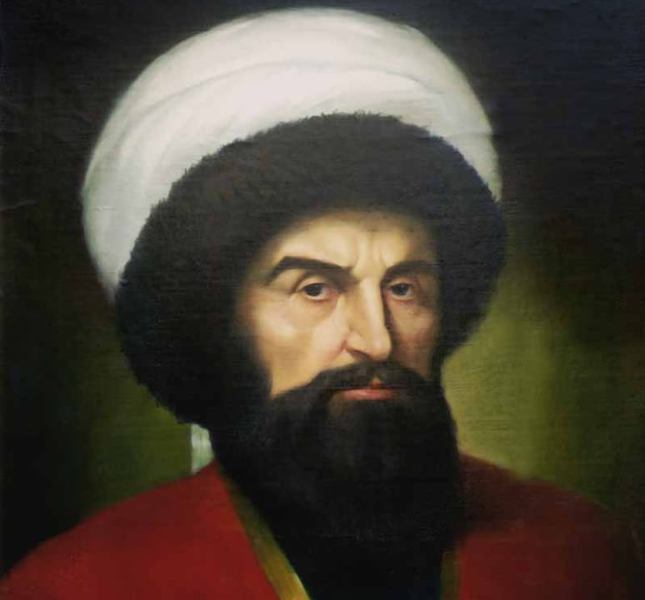In a time where the world has been overcome with the rule of man-made systems, systems that have seen growing unrest in all its corners because of the dysfunctionality nurtured by an inherently biased and limited rule, the desire for change amongst humanity can simultaneously be a great opportunity as well as a dangerous force. A great opportunity, because those that have taken divine guidance as their basis for thought and action can project their message upon a population searching for a better way. A dangerous force, because during tough times compromise with either those in authority or with those seeking change may seem an attractive and shortened path. The danger can be averted though, by those assured of their way understanding what they want and the way that change needs to be achieved.
Islam in its most foundational basis is believing in the existence of the Creator of the universe and that His (SWT) final message to humanity, The Quran, was revealed to Prophet Muhammad (ﷺ). It will naturally follow that Allah’s (SWT) judgment on any matter is the best and only outcome worthy of implementation, otherwise believing that Allah (SWT) is our creator becomes meaningless.
Verse 49 in Surat al-Ma’idah is one verse amongst many emphasising that ruling or judgement must be referred to what Allah (SWT) has revealed. The verse however, also issues a warning to beware of people tempting the Prophet (ﷺ), and by extension his (ﷺ) followers, away from His (SWT) ruling.
Allah (SWT) says:
وَأَنِ احْكُم بَيْنَهُم بِمَا أَنزَلَ اللَّهُ وَلَا تَتَّبِعْ أَهْوَاءَهُمْ وَاحْذَرْهُمْ أَن يَفْتِنُوكَ عَن بَعْضِ مَا أَنزَلَ اللَّهُ إِلَيْكَ ۖ فَإِن تَوَلَّوْا فَاعْلَمْ أَنَّمَا يُرِيدُ اللَّهُ أَن يُصِيبَهُم بِبَعْضِ ذُنُوبِهِمْ ۗ وَإِنَّ كَثِيرًا مِّنَ النَّاسِ لَفَاسِقُونَ
And judge, [O Muhammad], between them by what Allah has revealed and do not follow their inclinations and beware of them, lest they tempt you away from some of what Allah has revealed to you. And if they turn away – then know that Allah only intends to afflict them with some of their [own] sins. And indeed, many among the people are defiantly disobedient. [Surat al-Ma`idah:49]
The books of tafseer narrate that this verse was revealed when Ka`b bin Asad, Ibn Saluba, `Abdullah bin Surya and Shas bin Qays said to each other, `Let us go to Muhammad to try and misguide him from his religion.’ So they went to the Prophet and said, `O Muhammad! You know that we are the scholars, noblemen and chiefs of the Jews. If we follow you, the Jews will follow suit and will not contradict us. But, there is enmity between us and some of our people, so we will refer to you for judgement in this matter, and you should rule in our favour against them and we will believe in you.’ The Messenger of Allah refused the offer and Allah sent down these Ayat about them.
Although this verse was revealed after this particular incident, the verse is applicable to all times and situations within this subject of ruling according to the famous principle that “the meaning is in the generality of the words and not upon the specifics of the cause (of revelation)”.
The following verse continues:
أَفَحُكْمَ الْجَاهِلِيَّةِ يَبْغُونَ ۚ وَمَنْ أَحْسَنُ مِنَ اللَّهِ حُكْمًا لِّقَوْمٍ يُوقِنُونَ
Then is it the judgement of [the time of] ignorance they desire? But who is better than Allah in judgement for a people who are certain [in faith]. [Surat al-Ma`idah:50]
Ibn Katheer in his tafseer, comments on this, saying:
“Allah criticizes those who ignore Allah’s commandments, which include every type of righteous good thing and prohibit every type of evil, but they refer instead to opinions, desires and customs that people themselves invented, all of which have no basis in Allah’s religion. During the time of Jahiliyyah, the people used to abide by the misguidance and ignorance that they invented by sheer opinion and lusts. The Tatar (Mongols) abided by the law that they inherited from their king Genghis Khan who wrote Al-Yasiq, for them. This book contains some rulings that were derived from various religions, such as Judaism, Christianity and Islam. Many of these rulings were derived from his own opinion and desires. Later on, these rulings became the followed law among his children, preferring them to the Law of the Book of Allah and the Sunnah of His Messenger…… Who is more just in decision than Allah for those who comprehend Allah’s Law, believe in Him, who are certain that Allah is the best among those who give decisions and that He is more merciful with His creation than the mother with her own child Allah has perfect knowledge of everything, is able to do all things, and He is just in all matters.”
Ibn Katheer here relates the verse to different ages, from the time prior and during Muhammad’s (SAW) Prophethood and also using the example from the time of the rule of the Mongols.
Sayid Qutb, in his ‘In the Shade of the Quran’ comments on these verses highlighting the connection between implementing Allah’s (SWT) rules and Iman (belief):
“God (limitless is He in His glory) says that this whole issue is one of faith or unfaith, Islam or non-Islam, Divine law or human prejudice. No compromise or reconciliation can be worked out between these two sets of values. Those who judge on the basis of the law God has revealed, enforcing all parts of it and substituting nothing else for it, are the believers. By contrast, those who do not make the law God has revealed the basis of their judgement are unbelievers, wrongdoers and transgressors. Rulers can either implement God’s law in total and, thus, they remain within the area of faith, or they may enforce some other law. In this latter case, all three descriptions of unbelief, wrongdoing and transgression apply to them. If people accept God’s rule and judgement, administered by rulers and judges, then they are believers. Otherwise, they are not. There is no middle way between the two, nor can any justification or claim of serving legitimate interests be admitted. God, the Lord of mankind, knows what serves people’s interests and He has enacted His laws for that very purpose. No law or system of government is superior to His. No servant of God may reject God’s law or claim to have better knowledge than God with regard to what serves people’s interests. If he makes such a claim, by word or deed, then he pronounces himself an unbeliever………..The other consideration in this whole issue is the fact that God’s law is inevitably and absolutely better for mankind than any manmade law. It is to this fact that the final verse in this passage refers: “But for those who are firm in their faith, who can be a better law giver than God?” (Verse 50)”
The verse is an incredible source of contemplation and direction during these times. As the movement and desire for change increases in momentum, Muslims must resist any temptation or excuse to abandon or hide the call for the Implementation of Allah’s (SWT) deen. No justification can hold given the clear instruction given by Allah (SWT) in this verse. Whether it be for the excuse of “uniting” people, gaining support and sympathy from the International community, or for fear that the world powers gather against the Ummah, nothing can justify going against Allah’s (SWT) ahkam in word or deed.
Sayid Qutb further comments:
“It is a false notion to try to unite people at the expense of God’s law. Moreover, the attempt is bound to fail. The price asked is too high, since any modification of God’s law will lead to corruption on earth, injustice and the subservience of some people to others. This is, indeed, a great evil. If no compromise of God’s law is admissible for pursuing the noble purpose of uniting people, how can it be justified for something which is more petty. Some of those who claim to be Muslims argue that God’s law should not be implemented so that we do not lose the tourist trade!
It is either God’s law or man-made law, based on inadequate knowledge and vain desire. There can be no meeting ground between the two. “Do they desire to be ruled by the law of pagan ignorance? But for those who are firm in their faith, who can be a better law giver than God?” (Verse 50) This statement defines the meaning of jāhiliyyah, rendered here as “pagan ignorance”, as the term is used in the Qur’ān. Jāhiliyyah means that people are ruled by people, because this signifies that they submit to one another. They refuse to submit to God alone and reject His Godhead, acknowledging instead that some human beings have qualities of Godhead and hence they submit to their authority. As such, the term pagan ignorance, or jāhiliyyah, does not refer to a particular period of time, but to a certain situation which may come into existence at any time. Whenever it exists, it must be described as jāhiliyyah which is in contrast to Islam.
What can anyone say in justification of setting God’s law aside and substituting for it a law of jāhiliyyah, placing in the process his own desires, or those of a particular community or generation, above God’s law? What can he say if, in spite of this, he still claims to be a Muslim? What is his justification: circumstances, events, people’s unwillingness, or fear of the enemy? Were all these not known to God when He commanded Muslims to implement His law and follow His way of life and never be tempted away from any part of His revelations? Or does he justify his attitude by claiming that God’s law does not cater for new needs and new situations? Were these needs and situations not known to God when He made this very stern warning?”
The opportunity that presents itself to the ummah today as the world order falters must be seized upon through the instruction of these noble verses. If we are to shy away, for one reason or another, from calling for and working towards the return of Islamic rule, then we would have lost both our akhirah and the justice and harmony in this world that would naturally result from implementing our Creator’s system of governance. The Prophet (ﷺ) is indeed our greatest example in staying steadfast upon the divine course despite the offers presented to him by the power brokers, despite the criticism by family members and the wider society, and despite the intimidation and persecution meted out by his enemies. Indeed, nothing concerned him (ﷺ) save the preservation of the pure divine message which would ultimately elevate humanity.
![]()















